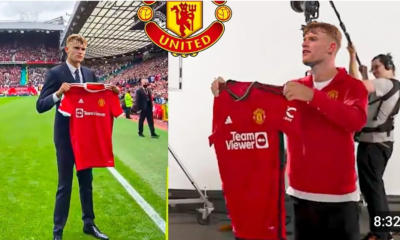Blog
Exclusive: Texas Tech’s Recent Payment Sparks Industry-Wide Debate in College Football
LExclusive: Texas Tech’s Recent Payment Sparks Industry-Wide Debate in College Football
In the rapidly evolving landscape of college football, few topics have generated as much buzz and controversy as the recent payment made by Texas Tech University. This development not only captures the attention of fans and analysts but also raises profound questions about the future of amateur athletics, compliance with NCAA regulations, and the broader implications for the sport’s governance.
**The Context of College Football Payments**
Over the past decade, college football has undergone transformative changes, primarily driven by the NCAA’s shift towards allowing athletes to profit from their name, image, and likeness (NIL). This shift was intended to provide student-athletes with opportunities to monetize their athletic fame legally and ethically. However, it has also opened doors for institutions and boosters to influence programs financially, sometimes blurring the lines between amateur and professional sports.
While NIL deals are generally transparent and regulated, instances where universities or affiliated entities make substantial payments to athletes or their families remain contentious. Critics argue that such payments can undermine the integrity of college sports, creating an uneven playing field where wealthier programs can outbid their rivals for top talent.
**Texas Tech’s Recent Payment: What Do We Know?**
According to exclusive sources close to the situation, Texas Tech University has recently made a significant financial transaction related to its football program. Although the specifics have not been officially disclosed, reports suggest that the university provided a substantial sum directly to a high-profile athlete or their representatives. This payment is believed to exceed typical NIL agreements and has triggered widespread speculation about its purpose and legality.
Sources close to the program indicate that this move was intended to secure a top recruit or retain a key player amid intense recruiting battles. The timing coincides with the NCAA’s ongoing investigation into similar practices at other programs, highlighting the potential risks and consequences faced by Texas Tech.
**Legal and Regulatory Implications**
The NCAA has historically maintained strict rules against paying athletes beyond scholarships and stipends. Despite recent relaxations and the legalization of NIL activities, direct payments from universities to athletes remain a gray area. The NCAA’s enforcement staff is actively scrutinizing such transactions, and violations can result in penalties, including scholarships revocations, postseason bans, or even vacating wins.
Texas Tech’s payment, if confirmed to be beyond permitted NIL arrangements, could constitute a violation. This raises questions about the university’s compliance protocols and whether athletic department officials acted within NCAA guidelines.
Furthermore, state laws and NIL regulations vary across jurisdictions, complicating enforcement efforts. Some states have enacted laws explicitly permitting certain types of payments, while others maintain restrictions. Texas, for example, has a relatively permissive NIL law, but it does not explicitly endorse direct payments from universities to athletes outside of NIL deals.
**Broader Industry Reactions**
The college football community is divided on the implications of such payments. Many coaches, administrators, and analysts express concern that these financial transactions threaten the core principles of amateurism and fair competition. They argue that if wealthy programs can outspend rivals through direct payments, the competitive balance in college football could be compromised, leading to a form of de facto professionalism that undermines the sport’s educational mission.
Conversely, some proponents contend that such payments are a natural evolution of NIL rights and reflect the reality of college sports’ commercialization. They argue that athletes deserve compensation for their contributions and that transparency and regulation are the keys to preventing abuse.
**Potential Consequences for Texas Tech**
If the NCAA determines that Texas Tech’s payment violates existing rules, the program could face sanctions. Past cases have resulted in penalties ranging from probation to postseason bans, which can significantly impact a program’s reputation and recruiting ability.
Moreover, this incident could prompt a broader review of Texas Tech’s compliance practices. The university may need to reevaluate its policies, implement stricter oversight, and cooperate fully with ongoing investigations to mitigate potential penalties.
**The Future of Payments in College Football**
This incident underscores a crucial turning point in college football’s evolution. As financial pressures and athlete expectations grow, the line between permissible NIL activities and impermissible payments becomes increasingly blurred. The NCAA and individual states are under pressure to craft clearer regulations that balance athlete compensation rights with the integrity of amateur sports.
Several proposals have been discussed within the college sports community, including establishing a federal framework for athlete compensation, creating transparent reporting mechanisms, and setting stricter limits on financial transactions.
**Conclusion**
The revelation of Texas Tech’s recent payment has ignited a broader conversation about the future of college football. It highlights the ongoing tension between commercialization and amateurism, regulation and autonomy, and fairness and competitiveness.
While the full details of the situation remain under investigation, one thing is clear: college football is at a crossroads. How institutions, governing bodies, and athletes navigate this complex landscape will shape the sport for years to come.
As the NCAA and other stakeholders deliberate, the Texas Tech case serves as a cautionary tale and a catalyst for necessary reforms aimed at preserving the integrity of college athletics while recognizing the realities of modern sports economics.
-

 Arsenal2 years ago
Arsenal2 years agoSad News Arsenal ex player who is goal scorer confirmed dead this morning
-

 Liverpool2 years ago
Liverpool2 years agoSad News Sadio Manè Confirmed Dead Today By Sky Sports Reporters, Open For Full Story 👇
-

 Blog2 years ago
Blog2 years ago“I was forcefully removed from Manchester United squad and now I’ve joined the best team in the world…I will revenge and as a result, I’ve ordered my friend who’s their best player currently to leave there with immediate effect and he has agreed”: Former Man United player angered by United decision to removed him from the squad as he ordered the Club’s best player to leave immediately.
-

 Blog1 year ago
Blog1 year agoSad News: Manchester United player died when playing for his country England yesterday 😢 😔
-

 Blog2 years ago
Blog2 years agoR.I.P: Formal Real Madrid and France international confirm death this morning
-

 Chelsea2 years ago
Chelsea2 years agoBreaking New:”Roman Abramovich could get Chelsea back”? Chelsea owner review the conversation between him and Roman Abramovich in. Deal about getting Chelsea back
-

 Blog2 years ago
Blog2 years agoUNBELIEVABLE: Manchester City midfielder KELVIN DE BRUYNE divorced wife this morning after DNA test revealed their 5 years old son belongs to formal Manchester United player
-

 Manchester United2 years ago
Manchester United2 years agoOFFICIAL NOW: Manchester United announce the signing of 23yr sensational player after beating Liverpool and Madrid for His signature, agreement reached on a 5yr deal, Medical completed – announcement ongoing












